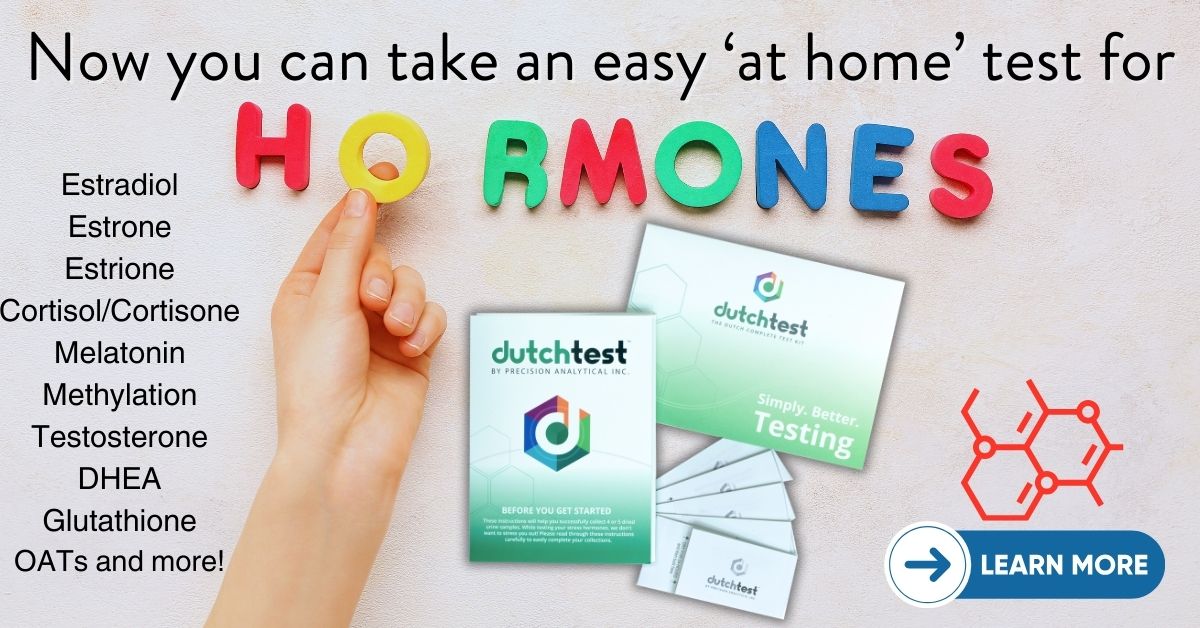What's On This Page?
ToggleFew things matter if you have chronic headaches, and women are mainly affected.
Teasing out the estrogen scenario is difficult because it fluctuates minute to minute, and month to month. It changes if you take estrogen-containing drugs such as hormone replacement, or if you drink from plastic water bottles a lot.
Estrogen is a moving target! But we do know that too much, or too little will create chronic, disabling headaches for women in the prime of their life. Today’s article will help you understand this more, and offer options for you to get better.
The Relationship of Estrogen to Headaches
It’s very clear that estrogen levels matter tremendously because the highest incidence of migraines is among women between the ages of 20 and 40 years of age. Animal studies concluded estrogen excess, specifically “estradiol” causes nerve sensitization, which means your nerves are more reactive and touchy! The researchers go so far as to say that estrogen elevations lead to chronic inflammation via cytokine storms, thus enhancing your pain perception.
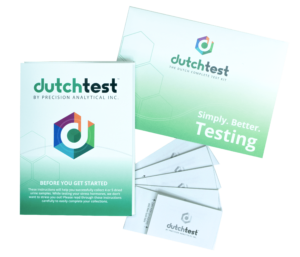
You may be inclined to do a blood test to determine levels but that doesn’t always work because it’s a snapshot in time while they’re drawing your blood. For this reason, I recommend doing a urine strip test such as “DUTCH Complete” to reveal precisely how your body metabolizes its own hormones, or those you take. These at-home tests are available at physician offices, or directly for purchase at my vitamin shop.
Another study (done in mice) concludes that estrogen deficiency is implicated.I wish I could lock up these researchers in a room and say, “C’mon people, make up your mind, you’re not getting outta here until you decide if it’s high or low estrogen!”
Why You Should Take Progesterone with Estrogen
Estrogen levels matter, but one problem I see time and time again is that physicians don’t always prescribe it along with progesterone, and I feel strongly that these two hormones should be taken together. Not doing so creates a relatively high amount of estrogen compared to progesterone, which leads to estrogen dominance, leading to headaches.
Even if you don’t have ovaries, or you are older, your cells still have receptor sites for progesterone. So taking a pill containing that at night will balance the estrogen you take in the morning. If are not taking any in the form of contraception or HRT, you are still making it if you are a woman and that’s why women have the highest risk of monthly migraines. Progesterone hormone tempers the estrogen you make, or take! I’ve written a book called “Headache Free” that is available on Amazon if you need more help with headache pain.
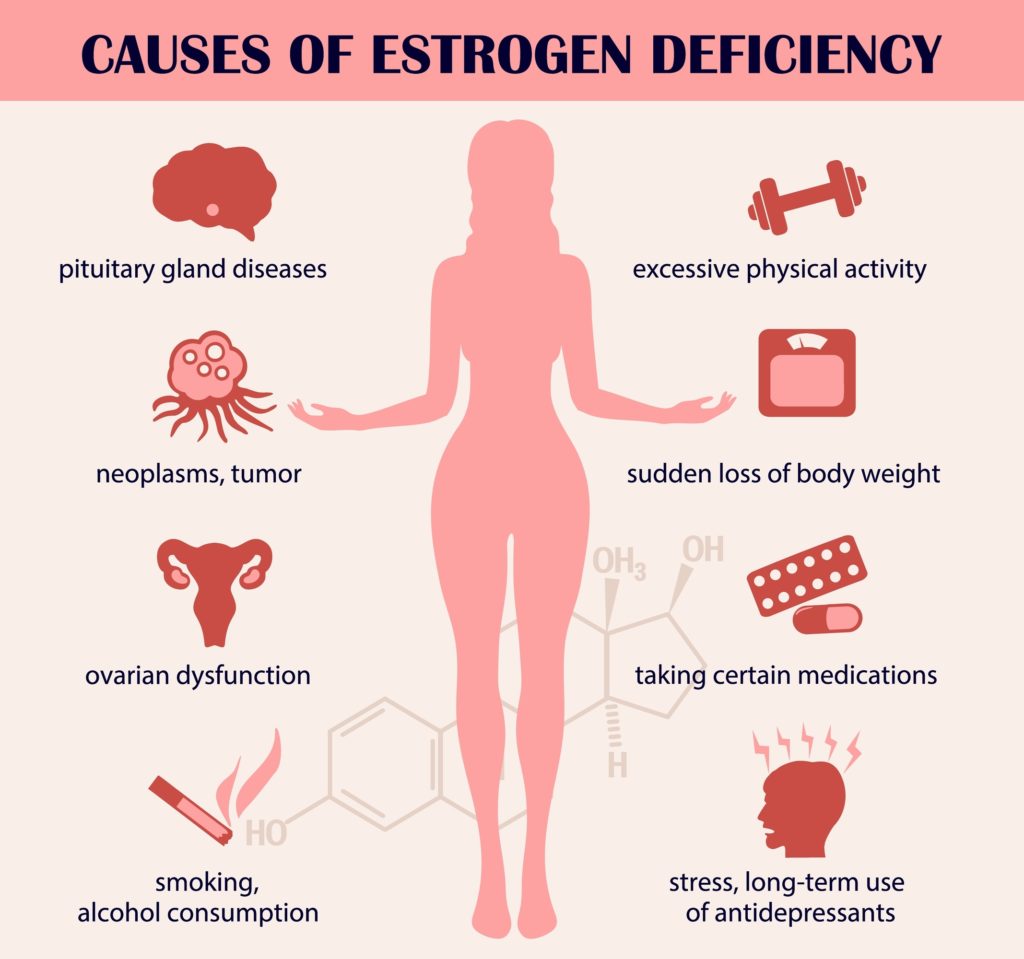
One more thing for men who use body-building supplements, or take testosterone for andropause. This easily converts to estrogen and can trigger headaches as well as hormonally-driven cancers such as prostate or testicular cancer, or benign hypertrophy of the prostate.
Too much estrogen in men leads to man boobs, low libido and erectile dysfunction. All of this can be tested for by a proficient hormone specialist.
Blood tests, as well as DUTCH tests will provide the best picture of what’s happening. Living a life with headaches is not a comfortable life. And with today’s technology and easy tests, it’s easy to discern whether or not your hormones are playing a role in your head pain.
Migrenades and Headaches
As for other triggers of headaches and migraines (I call them “migrenades”) there are many! A zinc deficiency due to chronic use of acid blockers can cause headaches. So can the use of blood pressure pills. Interestingly, endothelial dysfunction with low nitric oxide (NO) can cause vasoconstriction with resulting headaches! Nowadays there is a test that can check NO levels with a simple urine test strip.
Would it surprise you to know that both estrogen and thyroid hormone can increase NO in a person who is deficient? Doing so can help prevent headaches. It works like this. Thyroid hormone can enhance the production of nitric oxide by upregulating the activity of an enzyme called endothelial nitric oxide synthase (eNOS), the enzyme responsible for NO synthesis in the blood vessels.
Increased levels of nitric oxide lead to vasodilation, which improves blood flow and potentially reducing the frequency and severity of headaches by alleviating vascular tension in the cranial region. So people with hypothyroidism should consider medication and herbal treatment if they frequently get headaches. It could reduce frequency.
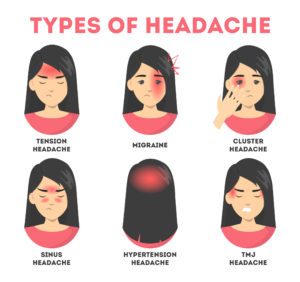
The most significant deficiency that people with headaches have is magnesium. If you take a medication that depletes your body of magnesium, it can lead to migraines, headaches, tension headaches and nighttime leg cramps.
There is a lot of research about this. Restoring magnesium can be the #1 thing you do to restore levels if you are deficient, and this would help some people to reduce the intensity of headaches, as well as the frequency. It’s something to think about.
You can also test your levels with a blood test magnesium, however, most people try oral supplements (or Epsom salt baths) and just gauge how they feel.
There is also Chelated Magnesium which is gentle on your stomach.
Eating lettuce and green leafy vegetables (what some people call “rabbit food”) is a quick way to raise magnesium, but it’s not as strong as supplementation.
List of Medications that Steal Magnesium and Cause Headaches
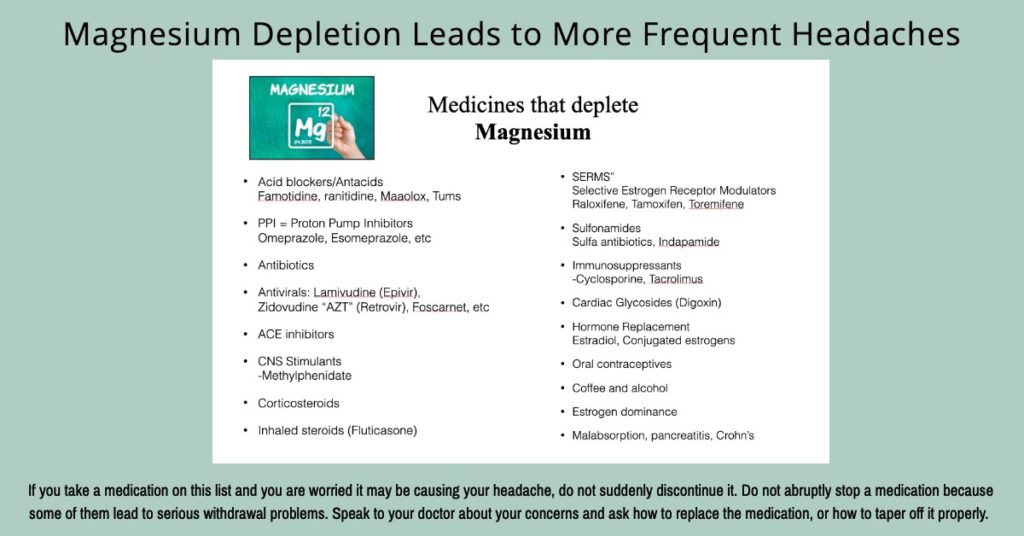
B Vitamins Improve Methylation and Relieve Headaches
Poor methylators have trouble with hormone imbalances. Let’s take the female hormone estrogen as our example. It’s made in the human body. People get more estrogen by coming into contact with synthetic estrogen-containing xenobiotics, things like shampoos, pesticides, plastics, skin creams, and medication and so much more.
If you can’t metabolize your estrogen from these sources (because your body genetically cannot methylate well and this is determined with blood tests or 23andme saliva tests) then you can’t fully clear the harmful, cancer-causing estrogen metabolites! You would suffer from various hormonal imbalances that translate to dozens of problems including monthly menstrual headaches, fibroids, endometriosis and prostate trouble for men.
Some people are extremely sensitive to nitrous gas (given by the dentist), and for those people, it’s a clue they can’t methylate well. Most of us who are not sensitive to that have to do a saliva 23andme test, or a blood test to see how we methylate. The one thing that drives the methylation pathway is a great B complex formula! By “great” I mean one that provides methylfolate (5-MTHF) to you, as opposed to folic acid.
Also, one that provides “methylcobalamin” which provides the “methyl” group you need to drive the methylation reaction. Vitamin B9 and B12 are important in this reaction for another reason, not just hormones. Methylation also plays a role in making and breaking down various neurotransmitters, such as energy-producing epinephrine and melatonin (the sleep hormone). If there’s a problem breaking neurotransmitters down, then they will hang around in excess, possibly causing insomnia, anxiety, and other mood disorders.
DHEA.
DHEA, short for Dehydroepiandrosterone is a hormone you make, that is sold as a dietary supplement too. DHEA levels peak at about age 25, then steadily decline as you age. DHEA is inversely proportional to cortisol, so when one goes up the other goes down, like a seesaw.
DHEA is anabolic, it helps you grow and make muscles, whereas cortisol is catabolic, and slowly breaks down muscle. Cortisol lowers testosterone, while DHEA raises it. DHEA may cause headaches as a side effect that’s one reason I don’t recommend supplementing with it unless you know you are deficient from your HORMONE TEST.
Another reason to be more careful with DHEA is that it may ultimately create more estrogen in the body. And if you are hiding hormone-driven cancer that has yet to be diagnosed, or you have dysplasia, adding DHEA could exacerbate this and increase metastasis.
I only mention it here because if you need DHEA to balance high cortisol, it can breathe life into you very quickly, but if you don’t need DHEA and take supplements that raise it, then it can have widespread detrimental effects on the body. Only a qualified medical professional can tease these things out. It helps of course if you can provide proper tests for him/her to evaluate at your visit.
In my Headache Free book, I have dozens of rescue options for persons with headaches. There are many hacks aside from what I’ve mentioned here (ie balancing hormones, taking B vitamins and magnesium), there is so much more.
8 Important Options to Reduce Headache Pain Right Now
Here are a few more considerations if you are reading this and in pain right now:
1. Separate from the mental stress. When you find yourself facing a stressful person or situation, you have to consciously pull yourself out of the drama, out of the moment. If it’s a person, physically leave for a few hours, if it’s the news, shut if off. If it’s a problem, distract yourself for a while and put an ice pack on your head, and take an over-the-counter analgesic.
2. Try yoga poses. You can try Child’s Pose or go to a restorative class.
3. Wet a little washcloth in some ice water and wring it out, then apply to your forehead or your neck.
4. Take your hair out of a ponytail, sometimes this causes headaches and scalp sensitivity.
5. Book a one-hour massage and try to breathe and relax for an hour.
6. Check your vision, if you need glasses and do not yet know that, it will cause chronic headaches.
7. Are your sinuses blocked? Do you have a stuffy nose or allergies? This will cause chronic headaches and can go undiagnosed for years.
8. Lemon balm, chamomile, or lavender tea reduce pain by binding to GABA receptors. Increasing GABA sometimes reduces headache pain and frequency. These are all sold commercially or make your own.

Suzy Cohen, has been a licensed pharmacist for over 30 years and believes the best approach to chronic illness is a combination of natural medicine and conventional. She founded her own dietary supplement company specializing in custom-formulas, some of which have patents. With a special focus on functional medicine, thyroid health and drug nutrient depletion, Suzy is the author of several related books including Thyroid Healthy, Drug Muggers, Diabetes Without Drugs, and a nationally syndicated column.
